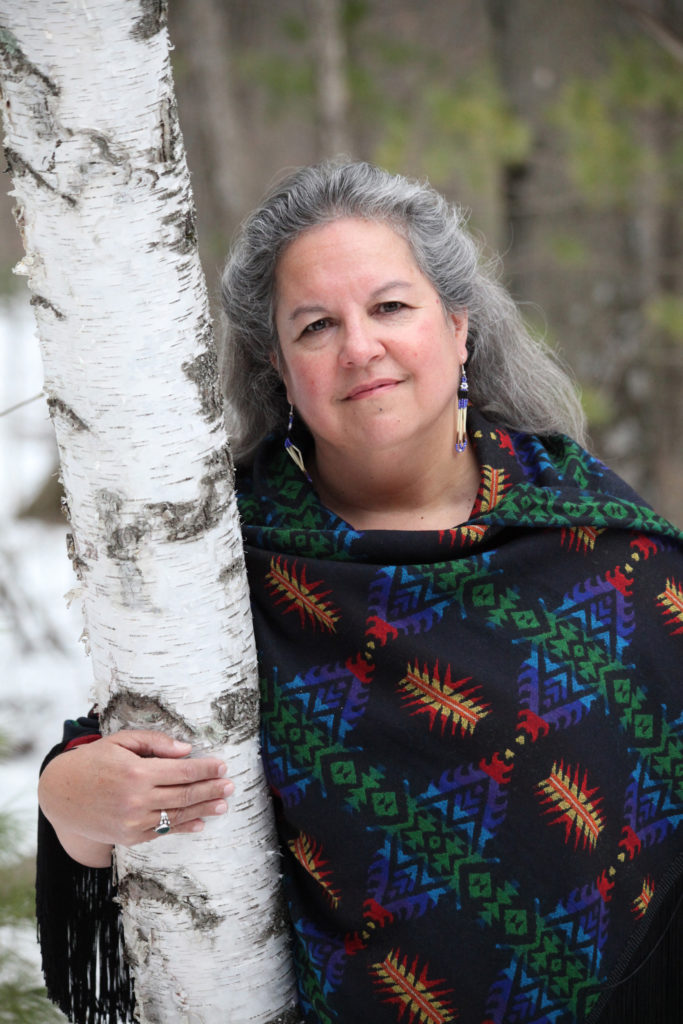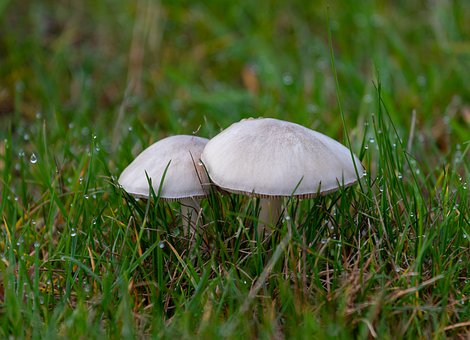
Indigenous Wisdom, Scientific Knowledge, and the Teachings of Plants
by Robin Wall Kimmerer*
An excerpt from the chapter called “Learning the Grammar of Animacy.”
“To be native to a place we must learn to speak its language.
“I come here to listen, to nestle in the curve of the roots in a soft hollow of pine needles, to lean my bones against the column of white pine, to turn off the voice in my head until I can hear the voices outside it: the shhh of wind in needles, water trickling over rock, nuthatch tapping, chipmunks digging, beechnut falling, mosquito in my ear, and something more—something that is not me, for which we have no language, the wordless being of others in which we are never alone. After the drumbeat of my mother’s heart, this was my first language.
“I could spend a whole day listening. And a whole night. And in the morning, without my hearing it, there might be a mushroom that was not there the night before, creamy white, pushed up from the pine needle duff, out of darkness to light, still glistening with the fluid of its passage. Puhpowee.
“Listening in wild places, we are audience to conversations in a language not our own. I think now that it was a longing to comprehend this language I hear in the woods that led me to science, to learn over the years to speak fluent botany. A tongue that should not, by the way, be mistaken for the language of plants. I did learn another language in science, though, one of careful observation, an intimate vocabulary that names each little part. To name and describe you must first see, and science polishes the gift of seeing. I honor the strength of the language that has become a second tongue to me. But beneath the richness of its vocabulary and its descriptive power, something is missing, the same something that swells around you and in you when you listen to the world. Science can be a language of distance which reduces a being to its working parts; it is a language of objects. The language scientists speak, however precise, is based on a profound error in grammar, an omission, a grave loss in translation from the native languages of these shores.

“My first taste of the missing language was the word Puhpowee on my tongue. I stumbled upon it in a book by the Anishinaabe ethnobotanist Keewaydinoquay, in a treatise on the traditional uses of fungi by our people. Puhpowee, she explained, translates as “the force which causes mushrooms to push up from the earth overnight.” As a biologist, I was stunned that such a word existed. In all its technical vocabulary, Western science has no such term, no words to hold this mystery. You’d think that biologists, of all people, would have words for life. But in scientific language our terminology is used to define the boundaries of our knowing. What lies beyond our grasp remains unnamed.
“In the three syllables of this new word I could see an entire process of close observation in the damp morning woods, the formulation of a theory for which English has no equivalent. The makers of this word understood a world of being, full of unseen energies that animate everything. I’ve cherished it for many years, as a talisman, and longed for the people who gave a name to the life force of mushrooms. The language that holds Puhpowee is one that I wanted to speak. So when I learned that the word for rising, for emergence, belonged to the language of my ancestors, it became a signpost for me.
“Had history been different, I would likely speak Bodewadmimwin, or Potawatomi, an Anishinaabe language. But, like many of the three hundred and fifty indigenous languages of the Americas, Potawatomi is threatened, and I speak the language you read. The powers of assimilation did their work as my chance of hearing that language, and yours too, was washed from the mouths of Indian children in government boarding schools where speaking your native tongue was forbidden.
“Children like my grandfather, who was taken from his family when he was just a little boy of nine years old. This history scattered not only our words but also our people. Today I live far from our reservation, so even if I could speak the language, I would have no one to talk to. But a few summers ago, at our yearly tribal gathering, a language class was held and I slipped into the tent to listen…
*Robin Wall Kimmerer, Citizen Potawatomi Nation, biologist, Distinguished Teaching Professor at SUNY New York, founder and director of the Center for Native Peoples and the Environment. Excerpt from Braiding Sweetgrass by Robin Wall Kimmerer, (Minneapolis: Milkweed Editions, 2013). Copyright 2013 by Robin Wall Kimmerer. Reprinted with permission from Milkweed Editions: milkweed.org
———————————-
Query: What ways of knowing have we all lost through the legacy of colonization? What ways of knowing are we missing now in our ways of learning, listening, respecting voices different from our own?
